Bass CDs
Bassist Eva Kess, “Sternschnuppen: Falling Stars”
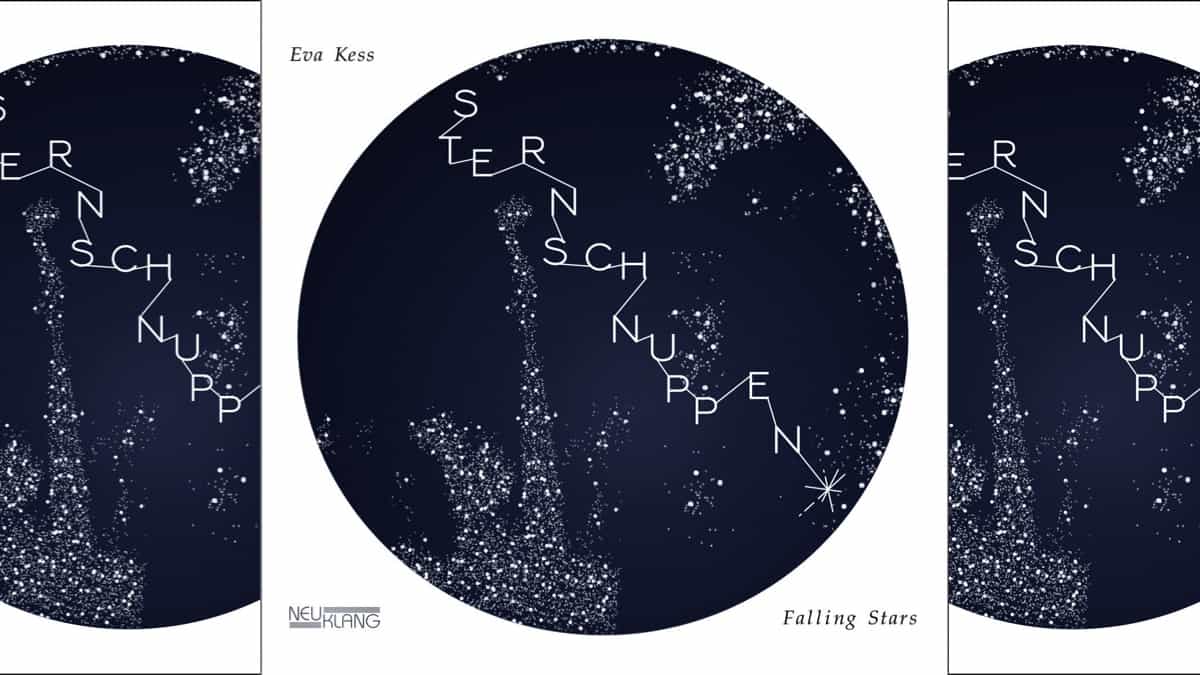
Bassist Eva Kess releases new CD
Bassist, composer, and bandleader Eva Kess unveils a remarkable expanded sonic palette on Sternschnuppen: Falling Stars, to be released August 28 on Neuklang Records. The Swiss/German musician heads a septet that also features pianist Simon Schwaninger, violinists Vincent Millioud and Susanna Andres, violist Nao Rohr, cellist Ambrosius Huber, and drummer Philipp Leibundgut—a wholly original take on the concept of chamber jazz.
It’s no mere matter of semantics that Kess calls her ensemble a septet, as opposed to the more common “trio plus string quartet.”
The bassist did not simply fuse two working ensembles together but assembled the group from scratch especially for Falling Stars—whose nine tracks she always performs in the same sequence as is programmed on the album. The music is a complex program that depends not on strings accompanying a jazz band, but on all seven members listening to and following each other with as much care as they give to playing Kess’s written notes.
“This is highly contrapuntal music,” she explains, “where every player holds a high degree of melodic and rhythmic responsibility.”
There can be no doubt about that. Whether in the kicky bossa nova of “Porto Alegre,” on which the violins play as an integral role in the groove as does the drummer; the bassist’s dramatic enmeshing with the other strings on the pianoless “The Subsequent Use of Yesteryear and Futility”; the every-which-way syncopation of “Experimental Dreaming”; or the bold interactions of “Penta Piece,” it’s clear that Kess’s conception is one that makes great demands on each of her musicians and gives none priority over any others.
This includes Kess herself.
Except in her compositional voice, the bassist is no overweening presence on Falling Stars herself: she can emerge from the ensemble with a lustrous solo or powerful obbligato, then disappear again into the groove. “As a double bassist I’m in a team providing rhythmic as well as harmonic information,” she says. “For me it’s about the music as a whole, not only the bass.”
In the case of Falling Stars, the music as a whole is both a reimagination of strings as jazz instruments, and of the fuller possibilities of a jazz ensemble. More than that, it is a scintillating work of art.
Eva Kess was born Eva Patricia Kesselring on April 10, 1985, in West Berlin and grew up in Bern, Switzerland (after spending a few years in Porto Alegre, Brazil). As a child she played piano, advancing enough that as a young teenager she was able to perform a Bach concerto with a symphony orchestra. At 17, however, her world shifted radically. First, she fell in love with the double bass after hearing a street performance by a bass quartet; soon afterward, a friend took her to her first jazz concert, where she fell in love once again.
Taking lessons with bassist Lorenz Beyeler—the bassist she had heard at that first jazz show—and later with fellow Bern bassist Thomas Dürst, Kess made the rounds of the local jazz scene, acquainting herself with both Bern’s musicians and the American and European artists who passed through the Swiss capital. She was soon able to form her own trio. After studying at the Music Academy of Basel, she returned to her hometown where she entered the University of the Arts Bern’s prestigious master’s program in music composition and theory. Among her teachers were pianist/composers Django Bates and Guillermo Klein, both of whom became her mentors.
In 2010, Kess won a scholarship to study in New York, adding the U.S. to Germany, Brazil, and Switzerland in her array of musical and cultural experiences. That same year she also recorded her debut album, Wondering What Is Coming. After seven years came her long-awaited second recording, Flying Curly, followed by last year’s unaccompanied album Bassexperiment and, now, Sternschnuppen: Falling Stars.
“Usually, I am an optimist, so I try to see the pandemic as a time found instead of time lost,” says Kess. “A time in which it is very important to keep going no matter what. At the start I’ve been asking myself: What can I do now for my future? And then I’ve decided to write some music, going for long walks in the forest or at the river, talking more with my parents, watching movies and reading some books. Of course the jazz aspect of interactive music is not possible during social distancing, so the communal experience is missing; many things have become a bit abstract lately. Music live and music online is not the same experience. As humans we are social creatures, it is a deep human need to be around others. Yet compositional processes are still the same and composition is pretty solitary and needs a lot of patience anyway.
“So many things are happening at the same time everywhere around the globe. As creators we take and we convert outside influences as well as inside feelings, experiences, convictions, beliefs, etc. All in all it is a very unique time for creators in which it is very important to stay inspired and to be compassionate with yourself and with others.” •
Visit online at evakess.com
Bass CDs
Reissue: Geddy Lee’s My Favourite Headache and Alex Lifeson’s Victor
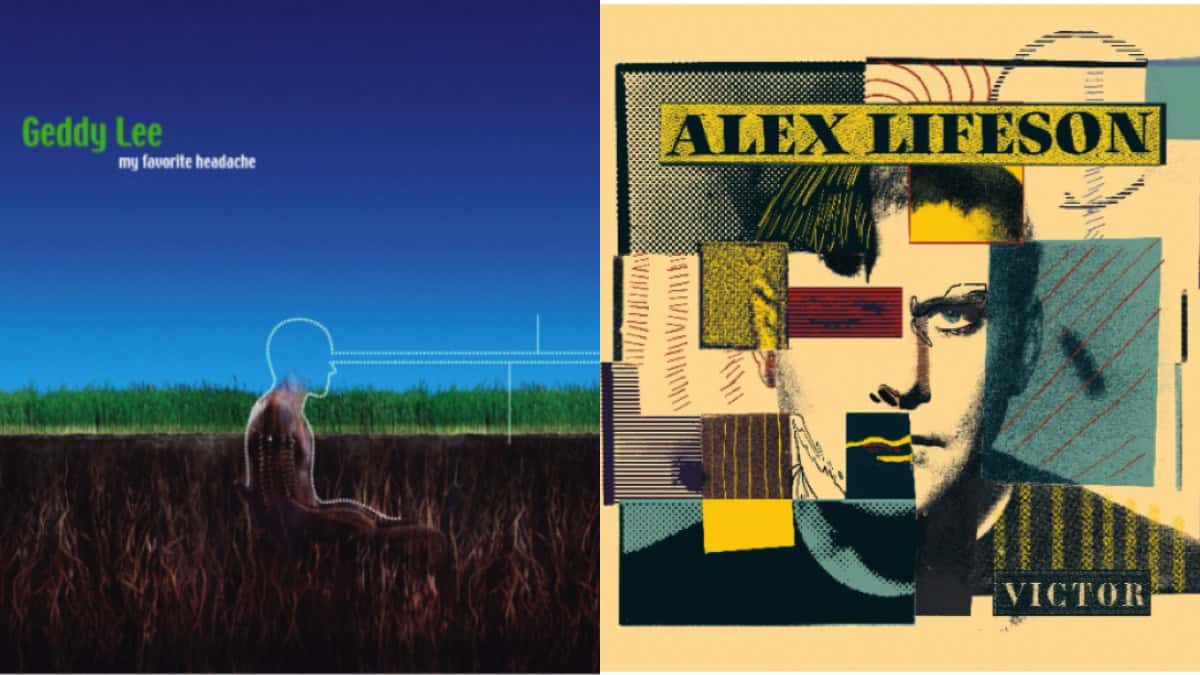
In an exciting announcement for Rush fans and rock enthusiasts alike, Anthem Records in Canada and Rhino Records will reissue the first-ever solo albums of Alex Lifeson and Geddy Lee. Lifeson’s 1996 album Victor and Lee’s 2000 offering My Favourite Headache will be re-released on August 9, 2024, in various formats, including a range of vinyl configurations.
My Favourite Headache, Geddy Lee’s only solo album to date, was initially released on November 14, 2000. This reissue marks its first vinyl pressing since a limited-edition Record Store Day exclusive in 2019. The fourth side of the album features two instrumental mixes. Produced by Lee, Ben Mink, and David Leonard, the album includes contributions from Mink and drummers Matt Cameron (Soundgarden/Pearl Jam) and Jeremy Taggart (Our Lady Peace).
Victor, originally released on January 9, 1996, marks Alex Lifeson’s solo debut. Lifeson took on the roles of songwriter, producer, and mixer for this album. For the first time, Victor will be available on vinyl, featuring a complete remix by Lifeson himself to enhance the audio quality. The fourth side of the album includes four instrumental tracks previously exclusive to Lifeson’s website. Guest artists include lead vocalist Edwin from I Mother Earth, Primus bassist Les Claypool, and Canadian powerhouse vocalist Lisa Dalbello. The 15-song collection is paired with striking 2024 reimagined artwork by Fantoons Animation Studios.
For more details on the Geddy Lee reissue and to preorder, https://lnk.to/MyFavouriteHeadache
For more details on the Alex Lifeson reissue and to preorder, https://lnk.to/AlexLifesonVictor
Bass CDs
New Album: Ben Wolfe, The Understated
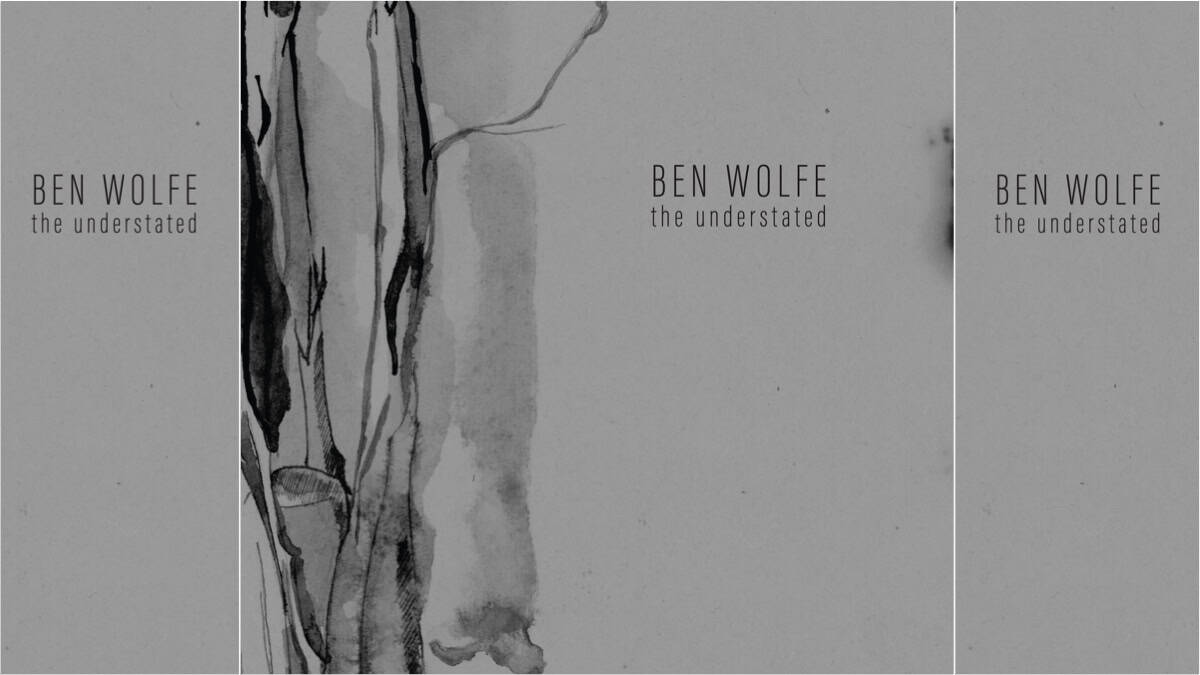
Acclaimed bassist and composer Ben Wolfe is thrilled to announce the August 9, 2024 release of The Understated.
This evocative new album features a collection of new original compositions by Wolfe paired, with re-imaginings of some of the composer’s classic material, with a particular emphasis on the ballad song-form. The album features ten tracks, five of which are ballads – a bold move for any composer – Wolfe creates a cohesive narrative here that challenges the listeners perception of the classic ballad. The Understated features Wolfe alongside artists who make up the very frontline of modern jazz, including pianist Orrin Evans, tenor saxophonist Nicole Glover, drummer Aaron Kimmel, guitarist Russell Malone and pianist Sullivan Fortner.
Wolfe has always been drawn to finding beauty in subtlety. He perceives a certain tranquility and elegance in the Coltrane Quartet, Louis Armstrong’s Hot Fives and Sevens, the legendary Miles Davis bands and rhythm sections, and the music of Charlie Parker. While he, of course, revels at the immense world-building energy of this music, it’s the “other side” – the elusive, magical aspect that endlessly captivates him – the understated. The composer draws inspiration most from the ensemble work of these hallmark jazz ensembles. Despite the individual parts being extraordinarily beautiful on their own, the musicians in these archetypal ensembles play only what is needed to serve the music, paying particular attention to the band-sound more-so than their individual sound. The Understated embodies this ethos with a tremendously impactful ensemble-oriented approach.
Wolfe sought to continue the thread started by “Lullaby in D” from his previous critically acclaimed release Unjust. Wolfe indicates, “Something about that take was so perfect to me. It had been brought to life, and it had that ensemble thing.” Wolfe assembled the quartet who recorded “Lullaby” (including longtime collaborator Orrin Evans, as well as recent frequent collaborators Aaron Kimmel and Nicole Glover) and two very special guests, Russell Malone and Sullivan Fortner. The recording process took place in one room with no headphones or isolation booths, further emphasizing the group’s collective awareness.
This record succeeds in bringing Wolfe’s expansive music to life through extremely conscientious group playing. Nothing is forced or pushed; everything that needs to be stated is stated. The single from the album, “Waltz,” encapsulates the spirit of the project. Wolfe says, “I view albums like a complete painting, so singles have been difficult for me. This song is very much in the spirit of the whole but doesn’t give away the record.” The piece features a sentimental melody delivered with grace by tenor saxophonist Nicole Glover, before Glover and Evans embark on stirring solos dancing in and out of the tune’s harmony.
Other new original compositions featured here include “Ballad in B”, which perhaps best demonstrates the group’s stunning cohesion. This tune is a refreshing diversion as it features a serene repeated melody without overt melodic improvisation. The following track, “Anagram”, begins with Kimmel’s rhythmic refrains and a unison melody played by Glover and Wolfe and is a true ensemble piece. On this track, Wolfe shines with a lyrical solo. The moody short interlude “So Indeed” is a lyrical masterwork that leaves the listener wanting even more. “Beautiful You” features master guitarist Russell Malone on the track’s melody. The emphasis here on restrained lyricism is a prime reminder of the old adage “it’s not the notes you play, it’s the notes you don’t play”. Each pocket of space in between melodic moments leaves room for the listener to breathe deeper and deeper into the song. The driving “Triangle Man” features fantastic improvisation from Glover and Kimmel. The tender “Barely Spoken” concludes the album with a feature for pianist Sullivan Fortner.
The album also weaves in references to Wolfe’s past works, creating a personal musical universe. “The Poet Speaks” is the opening track on his first record, 13 Sketches. “Occam’s Razor” was composed years ago for a collaboration with a choreographer and painter, and was a much different composition in its original form. “Love Is Near” was originally found on The Whisperer. With ballads in particular, Ben uses voicings and sounds that represent certain things to him, intentionally referencing his other compositions to generate connections between his songs.
Wolfe’s tremendous compositions on this album are also influenced by the group of musicians that he assembled for this release. Wolfe remarks “One of the things these five musicians share in common is that not only are they true ensemble players, they will always play something unexpected and special.” Listeners will find calm and beauty within the ensemble performances throughout The Understated.
Visit online at benwolfe.com/
Bass CDs
New Album: Orlando le Fleming, Wandering Talk
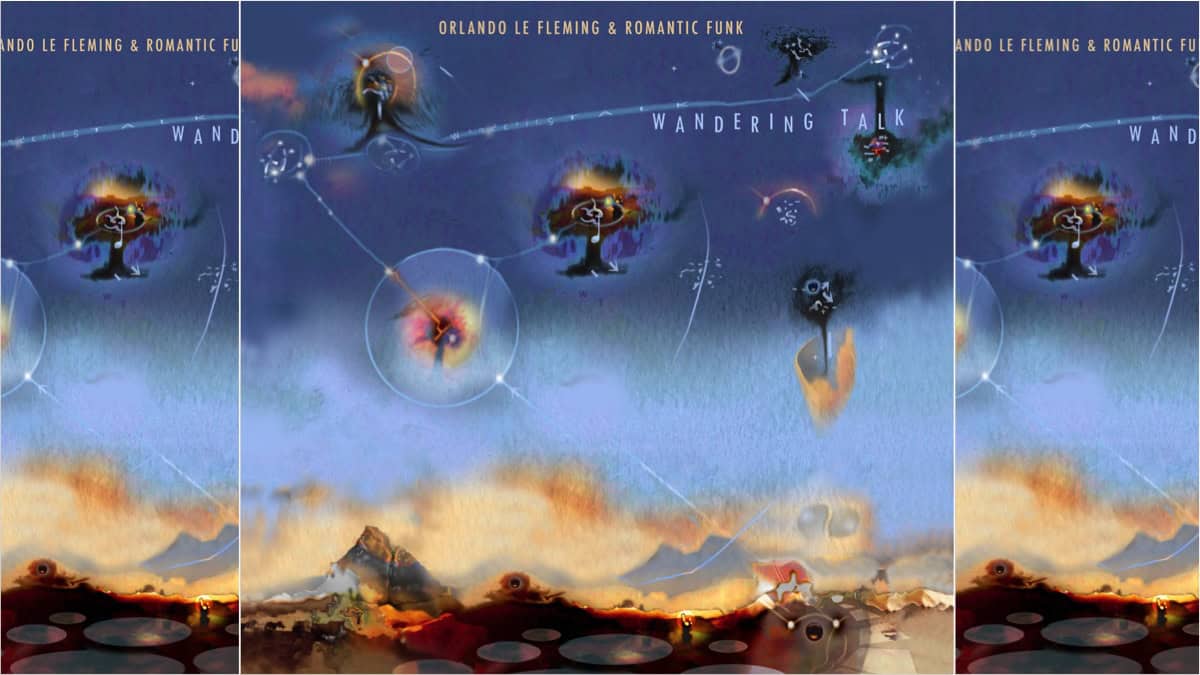
Bassist, band leader, and composer Orlando le Fleming continues to make music that crosses genres as readily as he crosses the Atlantic, with this new album ‘Wandering Talk’, to be released physically on 23rd August via the UK’s premiere jazz label, Whirlwind Recordings.
After 20 years in New York City, he’s back in his native UK, forging new pathways and renewing old partnerships. His love for the acoustic tradition continues unabated alongside his deep affection for the robust, muscular electric fusion that emerged in the 1980s, and he has received critical acclaim from media including The Guardian, Financial Times, Jazzwise, and All About Jazz among others. He has also toured and recorded with some of the world’s greatest jazz musicians including Branford Marsalis, Kurt Rosenwinkel, Antonio Sanchez, Ari Hoenig, and Wayne Krantz.
The Romantic Funk project was born in New York’s legendary 55 Bar to explore that legacy: now the new album ‘Wandering Talk’ builds on the critical acclaim generated by ‘The Unfamiliar’ (2020), building on the framework with a set of collaborators that brings together London and New York, past and present, acoustic, and electric, and merges it all into a spectacular whole.
Following the same principles that served the project in NYC, le Fleming booked four Friday nights at London’s renowned Vortex Club to workshop the music that would become the album, with a rotating cast of players which he honed down into the final line-up. Old London friends Tom Cawley (piano/keys) and James Maddren (drums) completed the rhythm section. New acquaintance Nathaniel Facey was picked from the ranks of the UK’s brightest young saxophone players. NYC stalwart Philip Dizack flew in from the US to play trumpet and reaching back to Orlando’s school days and forward to his own family, one-time classmate Chris Martin (Coldplay) and his own daughter Nadia combined to provide vocals on a special setting of Rumi’s poetry.
As before, the music combines fusion’s flash and fire with a contemporary sensibility. This time, Orlando’s questing spirit sends his superb band forward to investigate fresh areas of creativity in dynamic and texture.
Visit online at orlandolefleming.com
Bass CDs
Album: John Entwistle, Rarities Oxhumed – Volume Two
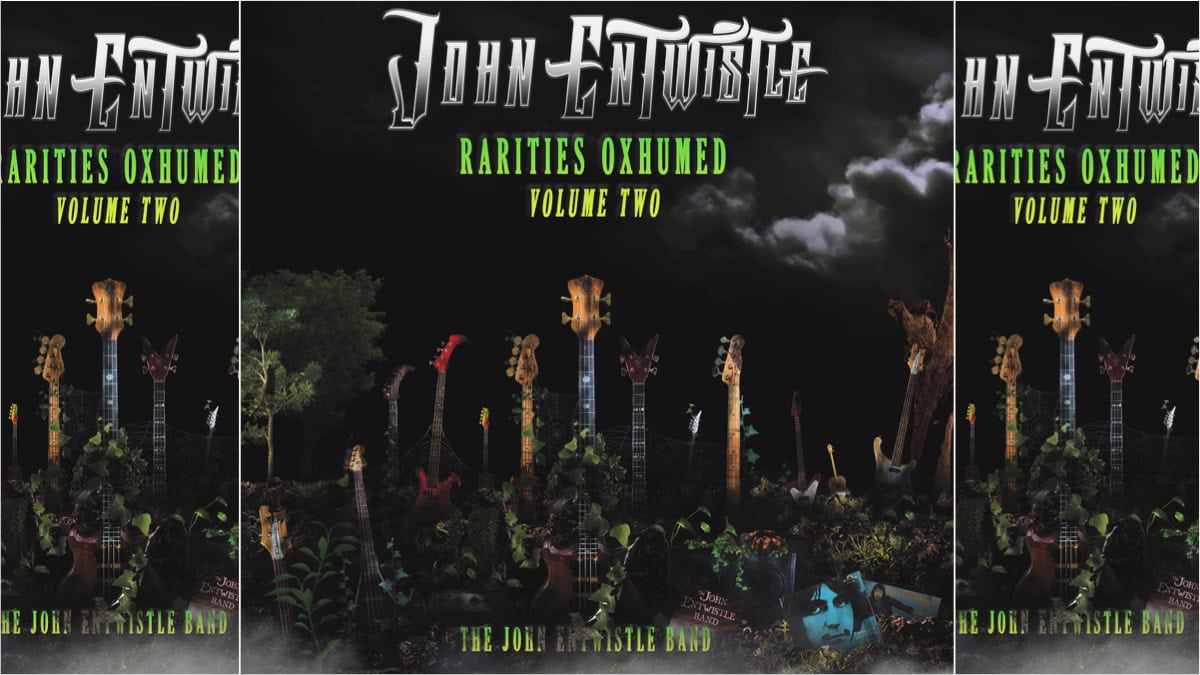
Album: John Entwistle, Rarities Oxhumed – Volume Two
Rarities Oxhumed – Volume Two is the second of the series of posthumous releases coming from John Entwistle.
Rarities Oxhumed – Volume Two is a compilation that was curated by drummer Steve Luongo, who served as John Entwistle’s producer, bandmate, business partner and good friend for many years. As Luongo states, “When I agreed to do two volumes of John Entwistle rarities, I knew volume two had to be even better than volume one. It is!” The collection of songs on Volume Two are from his years with the John Entwistle Band and include re-mastered versions of studio tracks including “Endless Vacation”, alternate mixes of tracks like “Sometimes”, and live tracks including The Who cuts “Real Me”, “Long Live Rock” and an epic version of “Young Man Blues”. The latest preview track to be released is the Who cut “Had Enough.”
Listen to “Had Enough” here: push.fm/ps/hadenough
Rarities Oxhumed – Volume One was quickly embraced by longtime fans as it featured gems like “Bogey Man” featuring Keith Moon, “Where You Going Now” (demo for the Who), and a raw live version of “Trick of the Light” recorded during the John Entwistle Band’s final tour in 2001. Deko Entertainment is thrilled to have been able to bring both volumes of this unearthed music of John Entwistle to the fans and forever solidify him as one of the greatest rock musicians ever.
For more information, visit online at dekoentertainment.com/john-entwistle
Bass CDs
Album Review: Mark Egan, Cross Currents
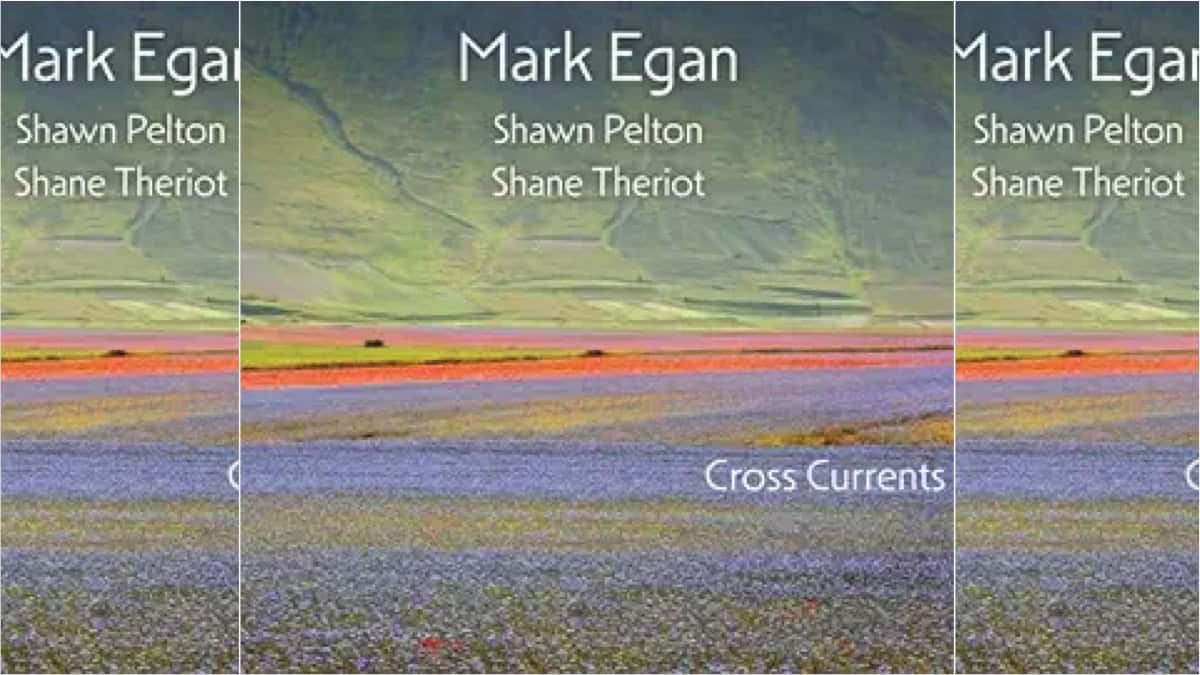
Mark Egan, Cross Currents…
It is exciting every time I get a new album from Mark Egan as he is such an amazingly versatile player and I never know what to expect (except for excellent artistry!) In his latest release, Mark has teamed up with Shawn Peyton on drums and Shane Theriot on guitar to bring us “Cross Currents”.
This collection of eleven tracks transports me to the Gulf Coast (New Orleans specifically). Mark’s fretless basses lay down a solid groove and lots of juicy solo work for this rootsy collection of funk, ambient, swamp-rock, second line, ballads, Cajun and even Indian Raga.
This trio is super-tight and the musicianship is flawless as each member has ample opportunity to shine. Even though each player is very talented in their own right, I feel that the collective energy is greater than just the sum of the players on this album. Each musician contributed to composing music for this project but the lion’s share are Mark’s original pieces.
I spent the summer of 1981 in New Orleans and this wonderful music takes me back to those fond memories. I participated in a wacky raft race on Lake Ponchatrain and this opening track elicits images of fun, sunshine, music, and great food.
This is another superb album that everyone will enjoy. Get your copy today! Cross Currents is available online at Amazon.com. Visit Mark online at markegan.com.











